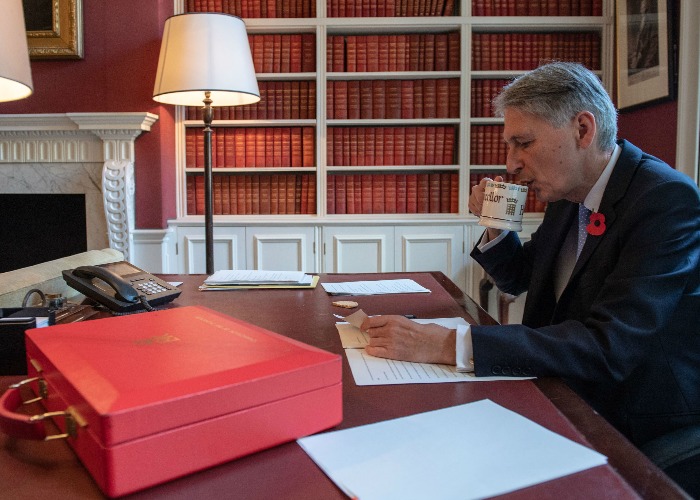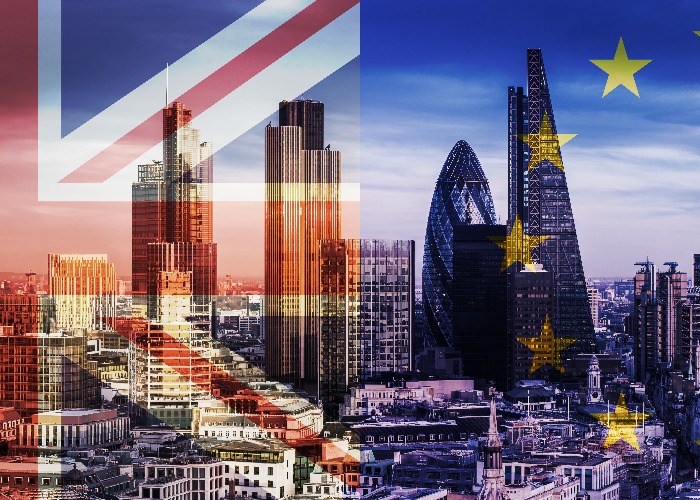Budget 2018: what it means for you

The Budget contained a smattering of good news, while pensions appear to have been largely forgotten. Here are all the Budget highlights you need to know about.
Chancellor Philip Hammond told the House of Commons that this Autumn’s Budget was “unashamedly” for “the grafters, the strivers and the carers” and that it paved the way for a “brighter future” beyond Austerity.
Hammond said that austerity was coming to an end but that “discipline” would remain.
Here's all you need to know about how yesterday's Budget.
We’ve divided it into sections on context, impacts on your wallet, key spending announcements, business and other announcements.
Not a 'normal' Budget
Economy
Britain’s economy is healthier than expected, according to forecasts from the Office of Budget Responsibility. Since 2009-2010, the Government says the deficit is down by four-fifths from 9.9% to 1.9%.
Employment is close to a record high and the economy has grown every year since 2010, with wages growing at their fastest rate for nearly a decade. Hammond hailed an “economy back on its feet again”.
Unemployment is at its lowest for 40 years, with more than 3.3 million more people back in work since 2020, according to the OBR, which also forecasts 800,000 more jobs by 2022.
Brexit
The chancellor admitted that Britain is, however, at a “pivotal point” in negotiations to leave the EU. He hinted at a “double deal dividend” that could be released once a deal has been signed, namely Hammond releasing some of the £2.2 billion he has set aside for Brexit.
However, he also said that he was “retaining firepower” to intervene if the economy needs an injection.
“If the fiscal outlook changes, I will take whatever action is necessary, if necessary upgrading the Spring Budget event to a full fiscal event,” Hammond told MPs.
Meanwhile, the upcoming Spending Review due after Brexit next year will cover five years.

How the Budget will affect your wallet
Personal Allowance
Hammond admitted that he had received “representations” asking him to consider scrapping manifesto commitments to raise the personal allowance in order to pay for the extra NHS funding.
However, as the OBR’s economic forecasts are healthy, he said that he did not need to do so.
Instead, the Personal Allowance – what you can earn before you start to pay tax – is to rise by £650 to £12,500 for the Basic Rate, so in April 2019 instead of the previous Conservative manifesto pledge of April 2020.
The Higher Rate tax threshold – the amount workers have to earn before they incur tax at 40% – will also increase from £46,350 to £50,000 in April 2019.
The Government says that the changes will mean there will be nearly one million fewer higher rate taxpayers in 2019-20 than in 2015-16.
So how much will these changes be worth? Accountants at Deloitte estimate anyone paying the Basic Rate of tax will be £130 better off, while those on the Additional Rate will pay £600 less in tax.
Higher Rate earners will theoretically be £860 to the good, but once you factor in a tweak to National Insurance not mentioned by the chancellor, this falls to around £500.
20 ways to pay less tax: cut your Income Tax, Council Tax, and Inheritance Tax
National Living Wage
The National Living Wage is to rise to £8.21 an hour from £7.83 in April 2019, benefiting around 2.4 million workers and representing an annual pay increase of £690 for a full-time worker.
Universal Credit
An additional £1.7 billion over five years was promised to increase work allowances and assist the transition of benefits claimants onto the new Universal Credit system.
Hammond admitted that implementing the new system was “an enormous undertaking” and said that the new measures should mean working parents and people with disabilities claiming Universal Credit will be £630 better off each year.
Landlords
As expected, landlords were a target for the chancellor. From April 2020, Hammond plans to scrap lettings relief, which reduces the amount of Capital Gains Tax (CGT) you need to pay on a property sale if said property was once your main residence.
The change won't affect anyone who has a lodger living with them.
Additionally, the final period exemption will also fall from 18 months to nine months.
The changes are likely to hit 'accidental landlords' in particular, who are expected to pay an extra £150 million in CGT as a result.
Landlords: how to cut your buy-to-let costs and fees
Self-employment (IR35)
Hammond is also to apply his crackdown on those who are self-employed via IR35 to large and medium-sized businesses in the private sector.
He previously targeted those in the public sector who have cut their National Insurance payments by setting themselves up as private companies.
Nigel Morris, Employment Tax Director at MHA MacIntyre Hudson said:
“Reform of the IR35 rules is seen as a less politically controversial way to raise money for the Treasury, in the absence of Parliamentary support for an increase in National Insurance Contributions (NIC) from the self-employed.
“What’s concerning is that the consultation this move is based on is too narrow in scope, ruling out some previous options that had real merits.
"The Government needs to be open-minded in how it delivers continued IR35 reform, the public sector rollout has not gone smoothly and it’s important these lessons are taken on board."
Fuel duty
As previously announced, fuel duty will be frozen for the ninth consecutive year, which Hammond said will represent an average saving of £1,000 for a car driver and £1,500 for a van driver.
How to find the cheapest petrol and diesel prices near you
Tobacco and beer
Tobacco duty will continue to rise, however, the chancellor is freezing duty on beer and cider for next year, as well as on spirits.
As such, beer will be 2p cheaper per pint than it would be under duty increases. Retail Price Inflation increases will remain on wine, while white ciders will be taxed at a new, higher rate.
Housing
Stamp Duty relief on properties worth up to £300,000 for first-time buyers is to be extended to all those buying their first shared-ownership property worth up to £500,000.
Meanwhile, funding is to be made available to 500 neighbourhoods to enable them to sell properties at a discount to local people.
Helen Morrissey, spokesperson at Royal London said: “While the extension of this stamp duty relief will help first-time buyers to get a step on the housing ladder we would argue that more can be done to make the housing market more liquid.
"While first-time buyers can buy a home what of those further up the ladder who cannot afford to either move to a larger home to accommodate their growing families or those looking to downsize.
"We would urge the Government to look at reliefs for those further up the housing ladder if we really want to free up the housing market.”
Premium Bonds
The minimum investment required to hold Premium Bonds will fall from £100 to just £25 next March. We're not sure how many people that will benefit, but it's nice to see the ever-popular bonds being made more accessible.
The criteria when buying Premium Bonds for kids under 16 will also be loosened.
Adults, such as godparents, aunts, uncles and family friends will be allowed to gift them from March (at present it's only parents, grandparents and legal guardians).
It's possible that you could soon be able to buy Premium Bond-equivalents from your local credit union. The Budget commits to piloting "a new prize-linked saving scheme for credit unions".
Pensions?
Aside from a very minor amendment to the Pension Lifetime Allowance (from £1,054,800 to £1.055,000) and an update about the pension dashboard and cold call ban, pension announcements were thin on the ground.
But this was perhaps good news: as we noted yesterday, all the talk before the Budget was of a potential raid on pension tax relief, which never materialised.
Head this way to learn more about how much the State Pension will pay in 2019 and 2020.
Read more about shared ownership properties and how to apply here

Key spending announcements
NHS
The chancellor joked that the single biggest Budget announcement had already been unveiled four months before Budget day by the Prime Minister, Theresa May – the Government’s “historic” £20.5 billion funding injection into the NHS.
The health service has produced a 10-year plan to be published shortly detailing where the money will be spent, with a focus on frontline healthcare.
Mental health
As announced this morning, the new NHS cash will also go towards funding a new mental health crisis service.
The extra £2 billion – part of the £20.5 billion – will make help available in every hospital accident and emergency Department, so-called community ‘safe havens’ and a 24-hour mental health crisis hotline.
Local Government
The Government unveiled another £650 million in grant funding to be made available to local councils for social care, with £84 million over the next five years for children’s social care.
The cap on the amount of money local councils are able to borrow to fund new housing developments is also to be axed.
Schools
Hammond also announced that £400 million would be made available to schools this year, with £10,000 for primary schools and £50,000 for secondary schools.
The regions
New cash was also unveiled for the regions for 2020-21, with £950 million for the Scottish Government, £550 million for Wales and £320 million for Northern Ireland.
Extra money was also announced for Belfast City (£350 million), Tay Cities (£150 million) and North Wales (£120 million).
Defence
Hammond unveiled £1 billion of extra funding for the Ministry of Defence to boost cyber-capabilities & for the Dreadnought programme, while an additional £160 million was also announced for counter-terrorism police.
Roads
Hammond announced a new £30 million National Roads Fund, funded by road tax, which will be the biggest ever investment of its kind to fund a network of new roads, including £25.3 billion for the Strategic Road Network.
An additional £420 million is to be made available immediately to local highway authorities to fix potholes and make bridge repairs.
Pothole damage: how to claim compensation from your local council

The Budget for businesses
High streets
A significant £675 million of funding is to be made available to local authorities to help draw up new plans for Britain’s high streets, which are currently under pressure due to the growth in online shopping, among other issues.
The funds will go towards improving transport links, re-developing empty shops and restoring old properties.
Small businesses
Meanwhile, small retailers with properties that have a rateable value of £51,000 or less will see a 33% cut in their business rates bill from April 2019 – an annual saving of £8,000.
Public toilets will also be subject to 100% business rates relief, whether public or privately owned.
"Today's announcement by the chancellor will come as a relief to the UK's high streets, as well as the communities based around them,” said Andy Melia, head of Place and Impact at Business in the Community.
“Modernising planning can support a shift in revitalising town centres across the UK, benefitting individuals, business and society as a whole and helping local communities to grow and thrive.
"The cut in business rates for firms with a rateable value below £50,000 will also be welcome news to Britain’s 5.7 million small businesses, who are the backbone of communities around the country.”
Entrepreneurs will also be pleased to hear that the Annual Investment Allowance is to rise to £1 million from the next calendar year from £200,000 to £1 million, while from October firms will be allowed to deduct 2% of the cost of any new non-residential structures and buildings from their profits before tax.
Apprenticeships
From next April, large firms can invest up to 25% of their apprenticeship levy to support apprentices, while smaller firms will pay half of what they currently pay for training their apprentices – the rest will be Government-funded.
New Digital Services Tax
As hinted at during the Conservative Party Conference, the chancellor unveiled a new 2% digital services tax aimed at large tech corporations.
This will be a “narrowly targeted tax” on UK-generated revenues of established tech giants and only paid by profitable companies with £500 million in annual sales. The new tax will come into being in April 2020 and is expected to raise £400 million a year.
However, Tim Walford-Fitzgerald, private client partner at H W Fisher & Company, was sceptical the UK’s move would achieve much without an international agreement.
"Whilst the Digital Services Tax will catch the global giants like Facebook it will not provide the fillip for the High Street that tackling the other behemoths like Amazon would achieve,” he said.
"That will require the renegotiation of various international treaties to catch warehouses and distribution centres operated by foreign domiciled companies.”
And the best of the rest
WW1 Commemorations
The Treasury is to make a donation of £10 million to veterans suffering mental health problems to commemorate the centenary of the end of World War One.
This will be funded via VAT reimbursement on the sale of commemorative items, such as poppies. An additional £8 million will also be provided for repairs to local village halls and £1 million for school visits to First World War battle sites as part of the commemorations.
Brexit 50p coin
A commemorative 50p coin will be issued when the UK leaves the European Union in spring 2019.
It will feature the Queen’s head and the date 29 March 2019, along with the phrase “Friendship for all nations”, the Sun reports.
The appearance of the new coin is yet to be revealed.
Comments
Be the first to comment
Do you want to comment on this article? You need to be signed in for this feature